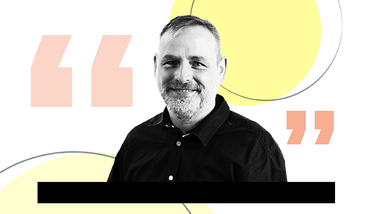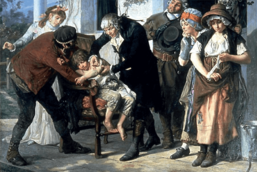Frederick Banting, We Salute You
Remembering the achievements in the short but successful life of insulin co-developer and Nobel Prize laureate Frederick Banting.
Rob Coker | | 3 min read | Historical

It might well warm the heart of the most fervent conspiracist to learn that insulin was isolated, developed, and delivered to the world in the true spirit of altruism. But with modern day manufacturers of the lifesaving diabetes treatment accused of price gouging, its co-developer, Frederick Grant Banting, would be turning in his grave.
Born in 1891 to an affluent family of farmers in rural Canada, Banting was a boy of no notable academic ability, but he had a penchant for sport. He was said to be solitary, silent, and somewhat isolated from his siblings, who were all several years older. He struggled with schooling to the point where his parents hoped he would find a clerical vocation. However, at 21, when he acquired funds from his father for the purposes of education, he matriculated into the University of Toronto, failing his first year studying arts but returning to study medicine in 1912.
A diligent student with a knack for surgery, Banting’s education was interrupted in 1914 with the UK’s (and therefore its colonies’) declaration of war against Germany. True to form, Banting failed to enlist twice because of poor eyesight, but eventually succeeded in joining the Royal Canadian Army Medical Corps in 1915, serving as a surgeon in Britain and France between 1916 and 1920. For his service, Banting was awarded the Military Cross after displaying “exceptional bravery while tending the wounded under fire,” according to his student and insulin co-discoverer Charles Herbert Best.
Upon his return to Canada, Banting set up his own practice performing medicine, surgery, and midwifery, whilst simultaneously teaching orthopedics and anthropology at the University of Western Ontario. It was there that his interest in diabetes was piqued after reading a paper on the pancreas. Following discussions with biochemists John Macleod and James Collip, Banting and Best set up a lab to produce insulin – first using extracts from the pancreata of adult dogs, and then from fetal calves.
In January 1922, 13-year old Leonard Thompson became the world’s first patient to be treated with insulin. A type 1 diabetes diagnosis came with a severely grim prognosis during this era, with most children dying within months. Thompson went on to live for 13 more years, taking regular doses of Banting’s medicine. Other notable early patients include Elizabeth Evans Hughes Gosset, the daughter of Republican Governor of New York Charles Evans Hughes (who narrowly lost the 1916 US presidential election to Democrat Woodrow Wilson). Hughes Gosset developed Type 1 diabetes in 1918 at the age of 11, but went on to live for a further 62 years with regular treatment.
In 1923, at the age of just 32, Banting was co-awarded the Nobel Prize in Physiology or Medicine alongside Macleod – both of whom shared the honors (and prize money) with Best and Collip respectively. Banting refused to put his name on the patent, believing that the swearing of the Hippocratic Oath prohibited him from profiting from a product that could save lives. A 2017 article by University Professor of Medicine and Biochemistry, Western University, Robert A Hegele, confirms that “Banting, Best, Collip, and MacLeod all believed that insulin should be made as widely available as possible, without any barriers such as cost.”
There are, however, some who believe nowadays that such medicines should be made available to the highest bidder, which is why the US FTC is planning to sue the group of PBMs involved in insulin price negotiations. One wonders about what Banting’s response to the removal of altruism from his development would be.
Banting continued to support the military during World War II, developing a treatment for mustard gas burns and innovating flight suits used by the US and Canadian Air Forces. He died in 1941, aged just 49, of injuries sustained in a plane crash.
His story is one of an unremarkable boy becoming a remarkable man with an incredible legacy through perseverance. The fact that Banting shared his Nobel Prize ensures he is also remembered as a humanitarian and philanthropist, as well as a dedicated servant to science and his country.
Frederick Grant Banting, we salute you!
Interested in more historical medicine makers? Read more in the We Salute You series:
Following a Bachelor’s degree in English Literature and a Master’s in Creative Writing, I entered the world of publishing as a proofreader, working my way up to editor. The career so far has taken me to some amazing places, and I’m excited to see where I can go with Texere and The Medicine Maker.






















